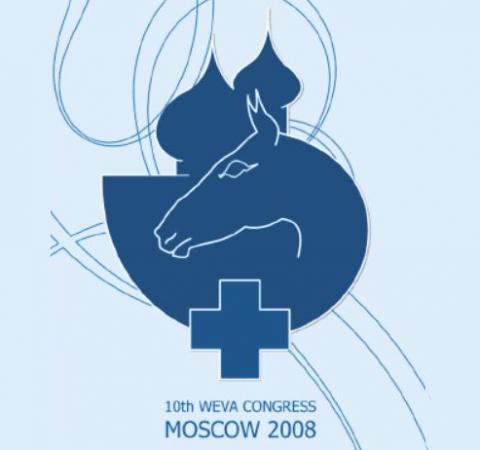Get access to all handy features included in the IVIS website
- Get unlimited access to books, proceedings and journals.
- Get access to a global catalogue of meetings, on-site and online courses, webinars and educational videos.
- Bookmark your favorite articles in My Library for future reading.
- Save future meetings and courses in My Calendar and My e-Learning.
- Ask authors questions and read what others have to say.
Equine Infectious Diseases: A Global Update to Include Lessons Learnt from EIA in Ireland 2006
Get access to all handy features included in the IVIS website
- Get unlimited access to books, proceedings and journals.
- Get access to a global catalogue of meetings, on-site and online courses, webinars and educational videos.
- Bookmark your favorite articles in My Library for future reading.
- Save future meetings and courses in My Calendar and My e-Learning.
- Ask authors questions and read what others have to say.
Read
Abstract
The past 10-20 years have seen exponential growth in the volume of trade in horses and equine germplasm and the extent of global horse movements has increased significantly in the last 3 to 4 years.
Major international competitions and highly priced races/equestrian events are associated with the transport of large numbers of very high value performance horses. Globalisation of trade in horses and their biological products (e.g. semen, embryos, plasma) and increased international movement of horses, both legal and illegal, enhance the risk of spread of a wide range of equine diseases. Veterinary authorities worldwide have responded to the threat of infectious disease spread inherent in international trade by formulating specific import policies.
In all instances, equine imports, whether represented by live animals or animal products, are obliged to meet the pre-entry and post-entry requirements stipulated by the importing country. These requirements vary depending on the disease situation in the country to which the horses are consigned. Surveillance of equine diseases at a national level and prompt reporting to the relevant authorities and the Office International des Epizooties (OIE), now recognized by the WTO as the World Organisation for Animal Health are critical to the effectiveness of national and international equine health control programs and import policies.
The speakers will present a global update on the disease situation of Equine Infectious Anemia (EIA) and experiences from the outbreak in Ireland in 2006, as well as on Japanese Encephalitis (JE).
In preparing for the transport of elite Olympic horses to Hong Kong in 2008, it will be very important to be as fully informed as possible of the disease situation in both the exporting and importing country, import and re-entry requirements, as well as having a vaccination strategy to protect against particular diseases. Japanese Encephalitis is endemic in Hong Kong and it is recommended, but not compulsory that horses are vaccinated against JE at least 14 days prior to import. The reasons for higher risk of JE infection of the olympic horses travelling to Hong Kong are presented and the availability of a respective vaccine (Herholz et al., 2008, EVJ in press).
Get access to all handy features included in the IVIS website
- Get unlimited access to books, proceedings and journals.
- Get access to a global catalogue of meetings, on-site and online courses, webinars and educational videos.
- Bookmark your favorite articles in My Library for future reading.
- Save future meetings and courses in My Calendar and My e-Learning.
- Ask authors questions and read what others have to say.




Comments (0)
Ask the author
0 comments